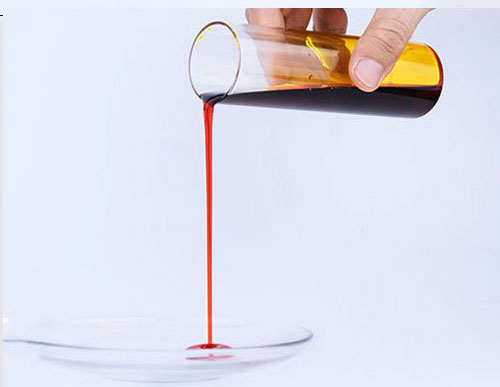Sea buckthorn fruit oil (Hippophae rhamnoides fruit oil) has been an important resource for traditional Chinese medicine and European folk medicine since ancient times, and is famous for its anti-inflammatory, repair, and nutritional enhancement effects. In recent years, with the advancement of analytical technology and the deepening of functional research, its application areas have expanded from traditional medicine to cutting-edge fields such as clinical treatment, functional food, high-end skin care products, and sports medicine. Many studies have confirmed that the vitamin E, polyphenols, and unique fatty acid combinations (such as linoleic acid and n-7 fatty acids) rich in sea buckthorn fruit oil provide a scientific basis for its antioxidant, anti-inflammatory, and metabolic regulation effects.
1. Clinical treatment application research
– Treatment of severe recurrent oral ulcers
A clinical study in 2024 showed that the topical use of sea buckthorn fruit oil in patients with severe recurrent oral ulcers can significantly shorten the healing time and duration of pain. After the study group used sea buckthorn fruit oil, the number of days for ulcer healing was reduced by about 30% compared with the control group (iodine glycerol), and the pain index was significantly reduced. Its mechanism may be related to the anti-inflammatory, antibacterial, and mucosal repair effects of seabuckthorn oil.
– Skin repair and anti-inflammatory
Palmitic acid, linolenic acid, and vitamin K in seabuckthorn oil have been shown to promote the healing of burns, scalds, and knife wounds and improve skin ulcers. Its antibacterial effect can inhibit pathogens such as Staphylococcus aureus and Escherichia coli, and accelerate tissue regeneration.
2. Antioxidant and anti-aging effects
– Free radical scavenging and anti-aging mechanism
Seabuckthorn oil contains high concentrations of vitamin E, carotenoids, and total phenolic substances. A 2025 study showed that its DPPH free radical scavenging ability is comparable to that of seabuckthorn seed oil and whole fruit oil, and it is more effective in the ABTS+ free radical scavenging test, which may be related to the higher linoleic acid content in the fruit oil.
– Anti-radiation and anti-aging
5-hydroxytryptamine and SOD (superoxide dismutase) in seabuckthorn oil can reduce the damage of ultraviolet and electromagnetic radiation to the skin, and at the same time delay cell aging by regulating oxidative stress response.
3. Cardiovascular and metabolic health
– Lowering cholesterol and protecting cardiovascular and cerebrovascular vessels
The unsaturated fatty acids (such as linoleic acid and n-7 fatty acids) in seabuckthorn oil can lower low-density lipoprotein cholesterol in the blood and prevent arteriosclerosis by regulating lipid metabolism. Studies in 2022 show that it can reduce vascular endothelial damage and improve microcirculation through antioxidant effects.
– Auxiliary treatment of metabolic syndrome
The active ingredients, such as proanthocyanidins and ursolic acid, in seabuckthorn oil have been shown to improve insulin resistance, reduce blood sugar fluctuations in diabetic patients, and reduce chemical liver damage.
4. Sports science and anti-fatigue
– Enhance sports endurance and reduce fatigue
Many studies after 2017 have shown that seabuckthorn oil reduces free radicals produced by exercise through antioxidant effects, protects myocardial and liver tissues from damage, and prolongs sports endurance. For example, after athletes take seabuckthorn preparations, their lung capacity and hemoglobin significantly improve, and fatigue recovery is accelerated.
– Anti-hypoxia and energy metabolism
The beta-carotene and vitamin C in seabuckthorn oil can enhance the oxygen-carrying capacity of red blood cells and improve myocardial hypoxia, which is suitable for people who exercise at high intensity.
5. Basic ingredients and functional verification
– Optimization of fatty acid composition
Studies after 2018 have shown that the linoleic acid content (about 58.02%) of seabuckthorn oil is higher than that of seed oil and whole fruit oil, while the linolenic acid content is lower, which makes it more advantageous in anti-inflammatory and skin repair.
– Polyphenols and synergistic effects
The phenolic substances (such as coumarin and ferulic acid) in seabuckthorn oil work synergistically with vitamin C to enhance immune regulation and anti-cancer activity, especially in inhibiting cancer cell proliferation.
In recent years, research has focused on the clinical transformation and functional verification of seabuckthorn oil, especially in the fields of anti-inflammatory, antioxidant, and metabolic regulation. Future research can further explore its nano-delivery technology, synergistic effects with other active ingredients, and safety evaluation of long-term use.

Leave A Comment